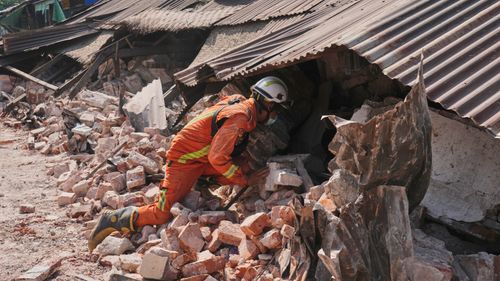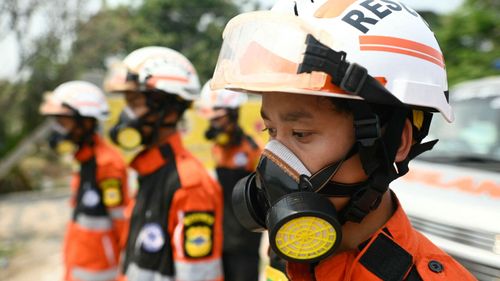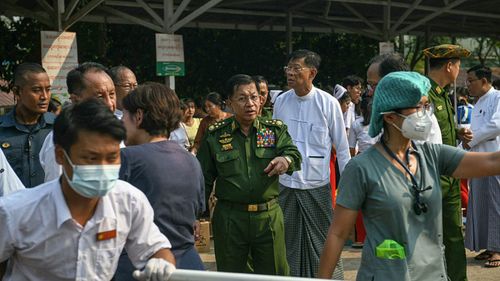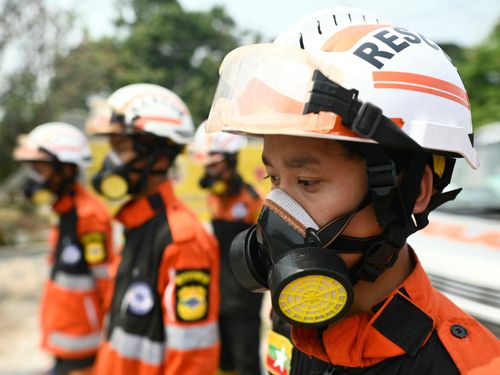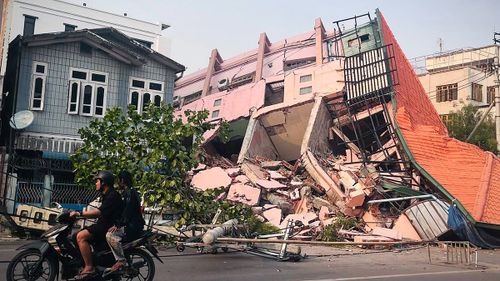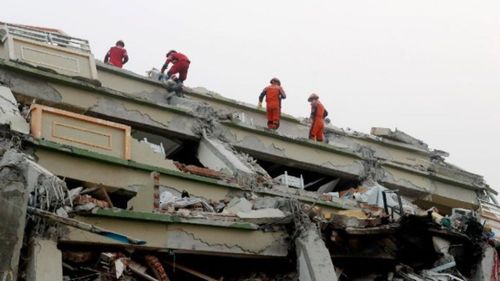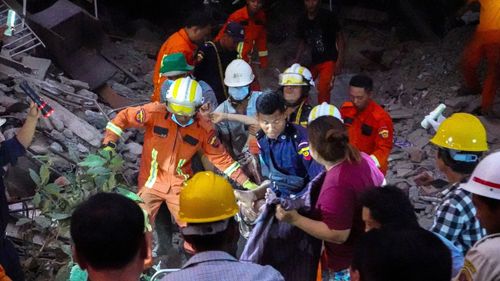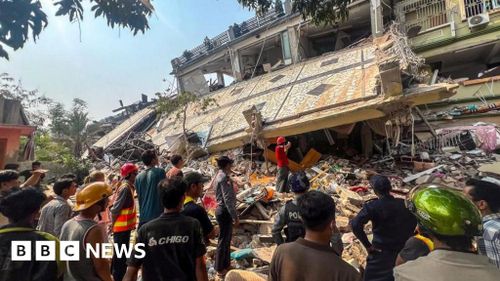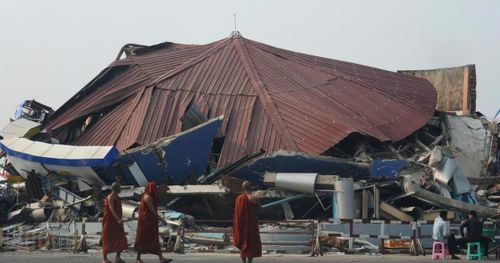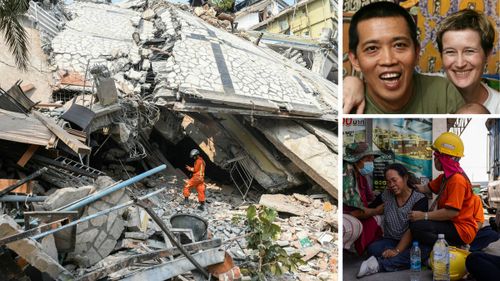Woman pulled alive out of Myanmar earthquake rubble after 91 hours: Officials
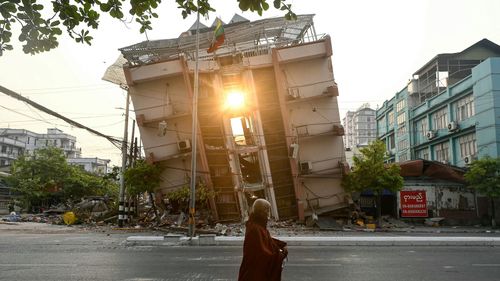
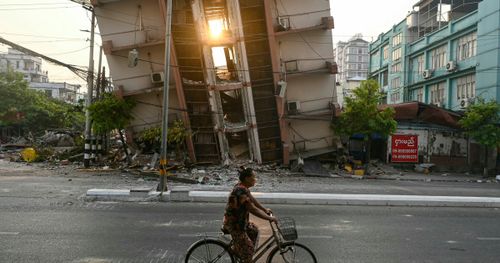
The death toll from a 7.7-magnitude earthquake in Myanmar climbed to more than 2,700 Tuesday, as the scale of the destruction in the isolated, war-torn Southeast Asian nation became clearer. The military-led government declared a national week of mourning Monday, three days after the midday earthquake shook Myanmar and neighboring Thailand. Hopes are fading for people trapped beneath rubble in both countries with the passing of a crucial 72-hour rescue window after which survival rates fall sharply. Nonetheless, a 63-year-old woman was found alive early Tuesday in the Myanmar capital, Naypyitaw, more than 90 hours after the quake. Dozens of monks are believed to be trapped under rubble after the quake sent monasteries in the Buddhist-majority country collapsing under their own weight.
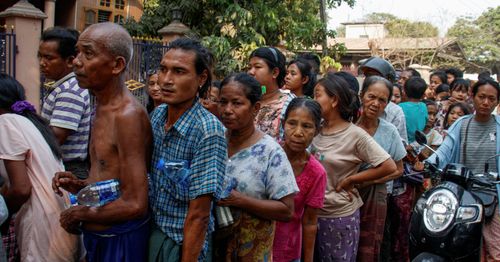
Aid groups in Myanmar on Tuesday described scenes of devastation and desperation after an earthquake that killed more than 2,700 people, stressing an urgent need for food, water and shelter and warning the window to find survivors was fast closing. Myanmar's military ruler Min Aung Hlaing said the death toll from Friday's 7.7 magnitude quake was expected to surpass 3,000, having reached 2,719 as of Tuesday morning, with 4,521 people injured, and 441 missing. "Among the missing, most are assumed to be dead. There is a narrow chance for them to remain alive," he said in a speech.
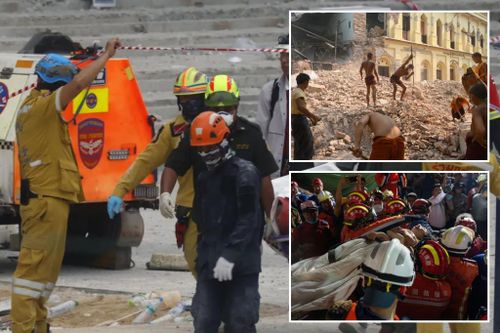
The head of Myanmar’s military government, Senior Gen. Min Aung Hlaing, told a forum in Naypyitaw that 2,719 people have been found dead, with 4,521 others injured and 441 missing, Myanmar’s Western News online portal reported. Those figures are widely expected to rise, but the earthquake hit a wide swath of the country, leaving many areas without power, telephone or cell connections and damaging roads and bridges, leaving the full extent of the devastation hard to assess. Most of the reports so far have come from Mandalay, Myanmar’s second-largest city, which was near the epicenter of the earthquake, and Naypyitaw. “The needs are massive, and they are rising by the hour,” said Julia Rees, UNICEF’s deputy representative for Myanmar.

